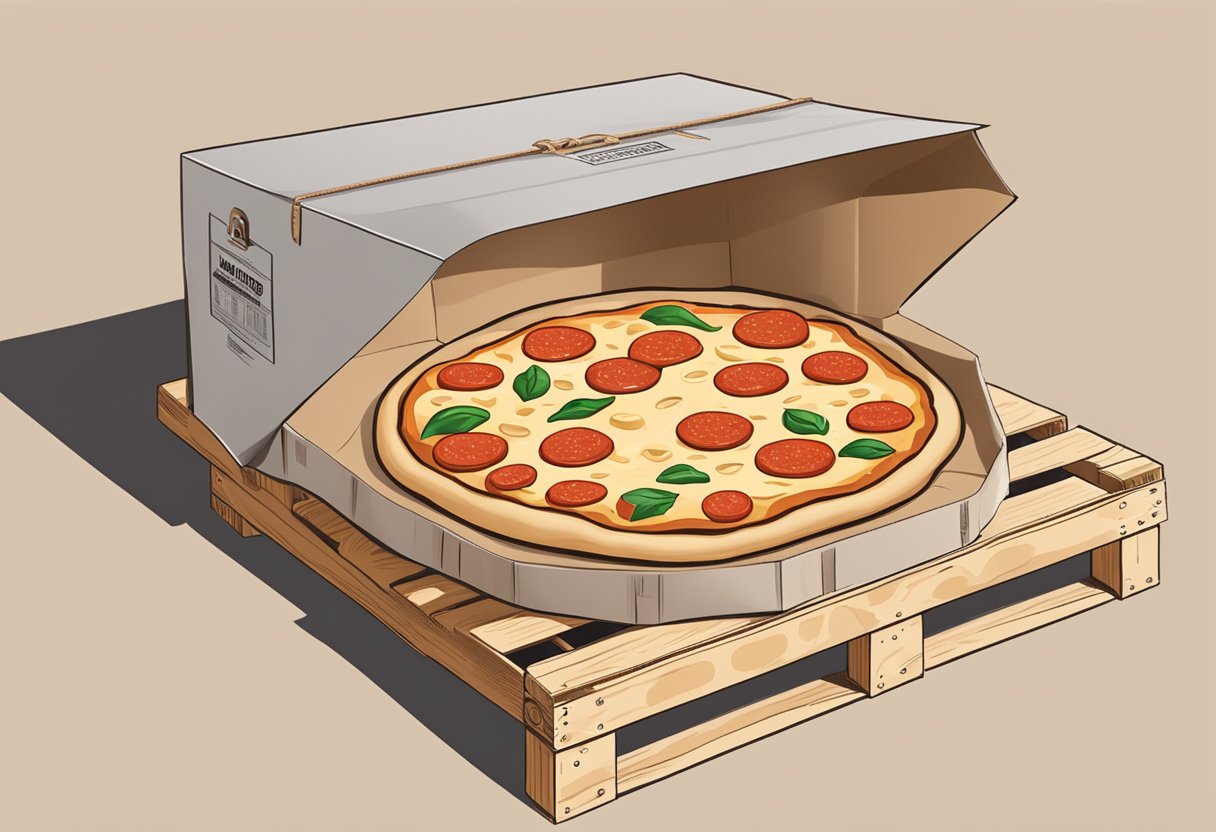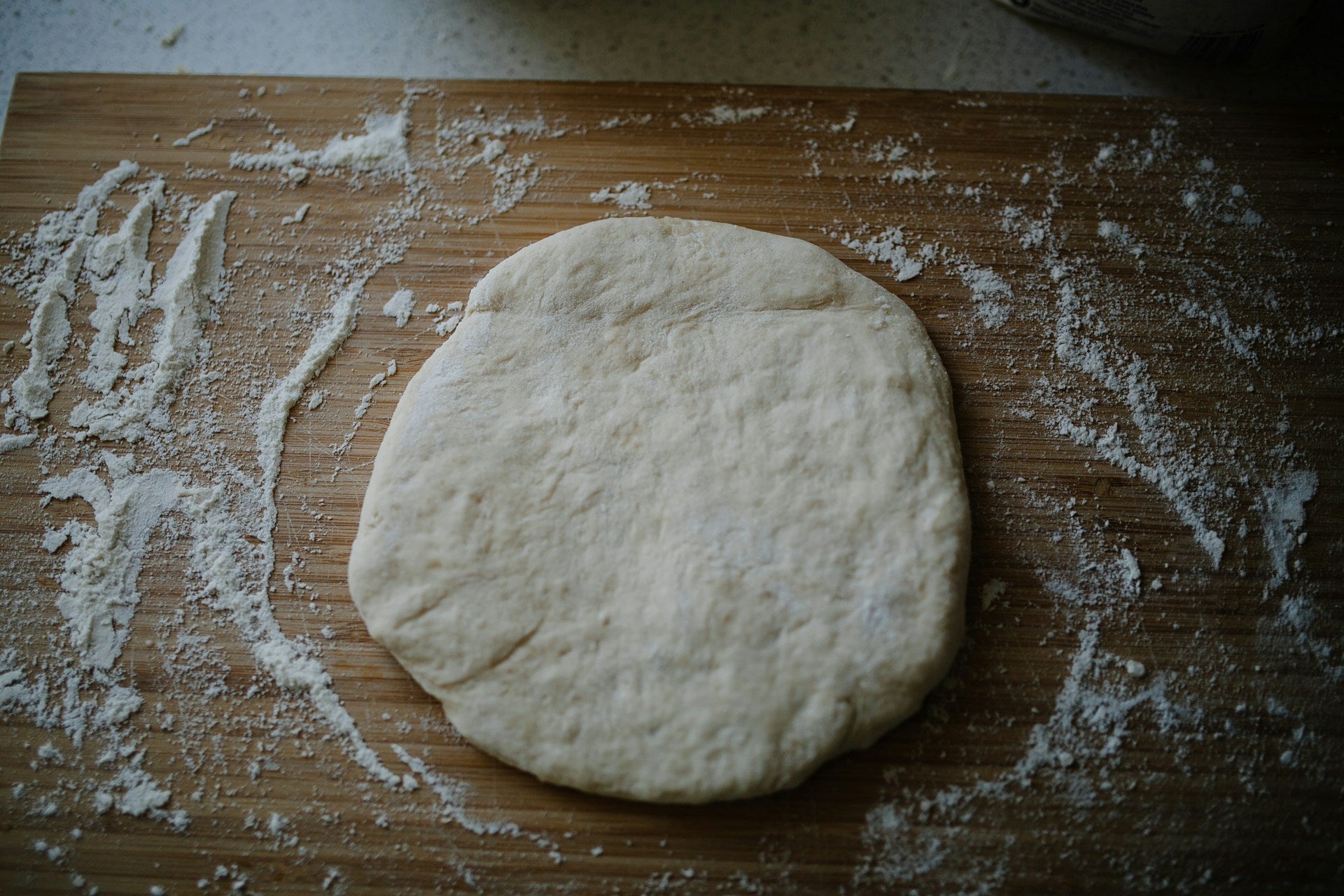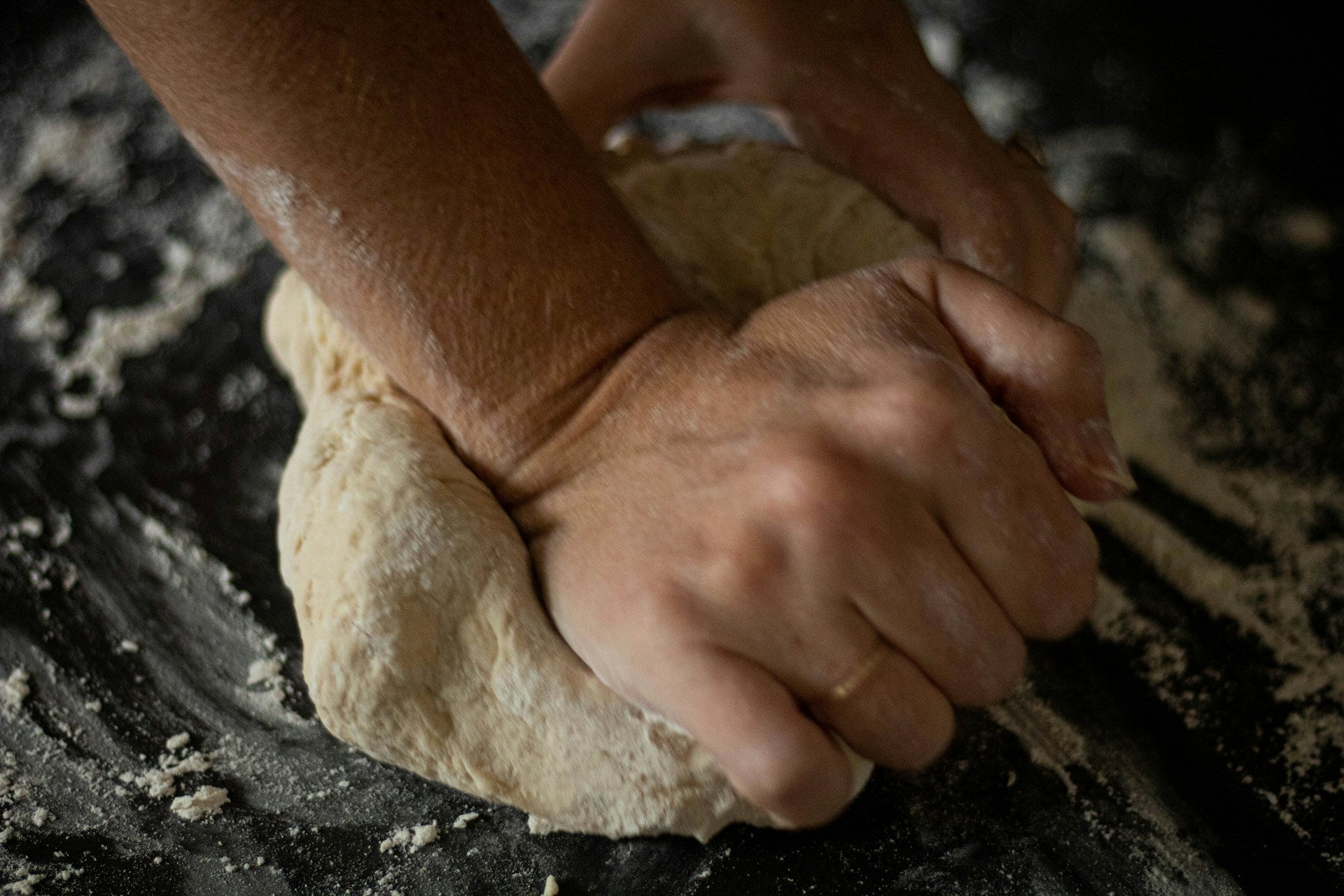
The Truth About Finding the Best Gluten-Free Pizza Dough: NCGS and Beyond
Most people will know someone who is gluten-free. Although a gluten-free diet was once specific to those who suffer from celiac disease, that doesn't seem to be the case anymore, with many people chalking their gut problems up to gluten and choosing to cut it out from their diet altogether.
The popularity of gluten-free diets has started to soar in recent years thanks to shifts in health trends. Social media platforms like TikTok, Instagram, and X are filled with anecdotal claims. Many people preach the benefits of avoiding gluten to their thousands, and sometimes even millions, of followers. Their reports candidly detail how avoiding gluten has done wonders for their gut symptoms – from bloating to extreme fatigue. However, none of this is backed up by science. It all comes from personal experiences.
With that in mind, if you don't have celiac disease, do you actually have to live a gluten-free diet? In actual fact, if you believe you are sensitive to gluten, you may actually be experiencing issues caused by broader gut health problems.
Here's everything you need to know about the science of gluten, whether you should be gluten-free, and how preparing your pizza dough properly can make all the difference.

What is Gluten? And How Does it Affect Me?
You've probably heard the word "gluten" bandied about before - as a true villain that causes digestion discomfort. But what does this ingredient actually do? And, more importantly, what even is it?
Gluten is actually a protein found in wheat, barley, and rye - ingredients used to make an array of breads, cakes, cereals, pastas, and even soup.
Gluten has huge effects on people who suffer from celiac disease. Even just a tiny trace amount of this protein can trigger a painful autoimmune response, which can damage the small intestines.
Going Gluten-Free For Celiac Disease
Celiac disease is the biggest reason why many people choose to live a life by eating gluten-free food. As we mentioned above, this protein can trigger severe and even life-threatening immune reactions in those with celiac disease.
Depending on their type of gluten sensitivities, people with celiac can experience symptoms in as little as a few hours of consuming gluten and still be suffering from them for days after, which can impact and hinder their lives in many ways. Symptoms can range from severe abdominal pain and bloating to fatigue.
Because of this, traditional pizza with gluten just isn't possible for people with celiac disease. However, because the delicious taste of pizza is so beloved worldwide, it makes sense that so many celiacs are searching for a great GF pizza dough recipe.
What Exactly is Gluten-Free Pizza?
A gluten-free pizza is exactly what it says on the tin; it's a pizza made without gluten - a protein found in wheat, barley, and rye. If you can't eat gluten, you likely can't eat most breads, which means you can't eat traditional pizza, either. Gluten gives the pizza dough its elasticity, which is what helps you stretch out and shape the base, creating that classic pizza form we all know and love.
However, there are alternative ingredients you can use to make a crispy and airy gluten-free crust. Instead of traditional flour, gluten-free pizza is made with a gluten-free flour blend (such as white rice flour or almond flour) and a binding agent such as xanthan gum.
Non Celiac Gluten Sensitivity and Its Effects
It's not just celiac sufferers who go out of their way to avoid gluten. More and more people claim to have non-celiac gluten sensitivity (NCGS), which leads them to suffer from symptoms such as bloating, fatigue, and abdominal pain after eating foods that contain gluten. This has led them to try alternatives such as gluten-free pizza dough and other breads in order to put a stop to these painful and uncomfortable symptoms.
However, unlike celiac disease, NCGS doesn't actually cause damage to the intestines. The immune response in people with NCGS involves specific antibodies instead. In fact, research carried out by Columbia University backs this up, revealing that NCGS involves a different kind of inflammation in the gut in response to gluten. Furthermore, studies suggest that gluten isn't the cause of symptoms in those with non-celiac gluten sensitivity - in actual fact, it could be fructan, which is a type of fermentable carbohydrate.
With all this in mind, is there another way to relieve symptoms of gluten sensitivities?
Gut Health and Gluten Sensitivity
NCGS may not actually be caused by gluten but might come from broader gut health issues that are down to how we eat and prepare our food.
Symptoms of NCGS include:
-
Abdominal or stomach pain
-
Bloating
-
Constipation
-
Nausea
-
Headaches
-
Fatigue
But that's not all. According to Beyond Celiac, NCGS can also cause other symptoms that aren't even associated with the gut, including skin problems, brain fog, and joint pain.
Furthermore, conditions such as increased intestinal permeability (also known as “leaky gut”) and gut microbiota imbalances can make negative reactions to various foods worse - and not just those that contain gluten.
Factors that can contribute to poor gut health include:
-
Diets high in processed foods
-
Diets low in fiber
-
Chronic stress
-
Overusing antibiotics
-
Lack of balance in gut bacteria
These can cause symptoms attributed to gluten when gluten may not be the cause at all. However, addressing these factors and building a diet rich in whole, organic foods, fermented products, and prebiotic fibers can fix the issues and make you feel much better.

Ingredients: The Good vs. the Bad
Store-bought products, such as pizza and pizza dough, can have a huge effect on your gut health, causing all sorts of symptoms, from poor digestion to abdominal pain and bloating. Because of this, a lot of people are led to believe they have a gluten intolerance or gluten sensitivity when that may not be the case - leading to a third of Americans actively going out of their way to avoid gluten.
Store-bought products are usually full of additives and preservatives to make them last longer, which can wreak havoc with our guts. So, while you may be tempted to reach for the gluten-free flour blend, you may not actually need to.
Processed Flour: the Real Villain
Gluten gets a terrible rap for causing gut discomfort when this could actually be all down to the type of flour people with gluten sensitivities are using. Popular flours often contain a huge array of additives that are supposed to help you out when it comes to baking but actually are not so great for eating. This can include:
-
Bleaching agents
-
Dough conditioners
-
Stabilizers
These may improve the performance of your baking, but they can also irritate your gut - especially the sensitive ones. Furthermore, flour can also contain pesticide residues from the wheat, which can inflame your sensitive digestive system even more.
Flour might seem like a simple ingredient, but your typical store-bought flour can do so much harm to your gut health, leading people who consume it to believe the problems lie with gluten. Organic flours that haven't been processed and are free from all those nasty, unnecessary additives can actually help your gut - not hinder it. You may not even need gluten-free flour at all; you may just need an organic option.
Get Delicious, Healthy Pizza Using Organic Flour

Prepa Pizza Dough Kit
815g - $29.97 - 5.0 out of 5 stars based on 3178 reviews
Shop NowIf you don't have celiac disease, and you're going gluten-free because you think it will give you a healthy pizza, then it might not be your best option. You can still make delicious pizza at home with all the nutrients you need without sacrificing gluten. It all comes down to ditching store-bought pizzas and pre-made doughs and using premium, high-quality ingredients instead.
Prepa Pizza has everything you need to make healthy pizza at home.
-
High-Quality Ingredients - Our kits come with flour, olive oil, yeast, salt, malt powder, and a splash of honey to bring you delicious pizza.
-
Flour Imported From Italy - We use organic 00 Piza flour, which is designed especially to make pizza.
-
Perfect For All Skill Levels - Whether you're a complete beginner or a pizza pro, our kits are perfect for people of all skill levels.
-
Everything You Need - Say goodbye to scouring through pantries and cupboards for ingredients. Our pizza kits come with everything you need to make healthy, restaurant-style pizza.
Try our Prepa Pizza Kits today!

Preparing Pizza Dough the Traditional Way
Many online recipes cut corners and use cheats to make their pizza, but they might be making their gut issues worse because of it. Properly made pizza using a traditional technique with healthy, organic ingredients can make all the difference in your gut health.
Using Organic Pizza Dough Ingredients
Using organic ingredients in pizza means you can avoid the preservatives and additives found in conventional products and instead focus on getting nutrition from healthy, nutrient-rich grains.
Choosing the Right Flour
Using premium bread flour or high-quality 00 flour will help you make delicious, healthy pizza that won't upset your gut. Since organic wheat is grown without synthetic pesticides and fertilizers, this means you get a flour that is healthier for both you and the environment.
Furthermore, since organic flours often retain more of the wheat’s natural fiber and nutrients, this helps support your digestion system and has a lower glycemic impact.
Other Pizza Ingredients
-
Yeast - Many recipes require you to use instant yeast or dry active yeast to make your pizza dough. Choosing an organic, high-quality option will make all the difference and ensure you get a beautiful rise.
-
Olive Oil - This will provide the dough with flavor and give your pizza crust that golden brown color that pizza is so famous for.
-
Sea Salt - This is another ingredient that will give your pizza dough a bit more flavor.
-
Water - Use fresh, filtered water to make your dough.
We use organic ingredients in all our pizza kits to ensure you get perfect, healthy pizza every single time. Once you combine the above ingredients with proper leavening techniques, you can bake a pizza that's both healthy and delicious.
Using a Longer Fermentation Process
Many online pizza dough recipes skip a longer fermentation process, choosing to focus on making a quick dough instead. However, that can be a huge mistake. Allowing a longer time for the dough to ferment can actually improve the digestibility of the dough, giving the yeast and bacteria a better chance to break down complex proteins - including gluten. This actually makes it easier for the body to process the gluten.
Furthermore, a longer fermentation time actually increases nutrients such as B vitamins, iron, and zinc.
And not only that! Longer fermentation will actually improve the flavor of your dough. This is because it develops complex flavors, making a more delicious and satisfying pizza crust. Where many pre-made doughs rely on additives to enhance the flavor (and, in turn, irritate the gut), traditional methods eliminate this need entirely. In the end, you get a tasty and healthy pizza.

Our Top Tips for Making Perfect Pizza Every Time
Whether you're making traditional or gluten-free dough, you'll want a pizza that tastes perfect every single time. Here are our top tips for ensuring you get that delicious pizza taste with every single bite.
-
Use High-Quality Flour: Whether you're using traditional flours or gluten-free flours, not all are created equal. Some are better than others. Whether you're looking for a gluten-free bread flour or a traditional 00 variety, choose a high-quality blend that's designed for pizza dough or breadmaking.
-
Try a Pre-Bake: Pre-baking your dough is optional whether you're making traditional or gluten-free pizza, but this tip will also give you a crispier crust and firmer base for all your desired toppings.
-
Get Experimental with Flavors: We're talking herbs like oregano and fresh basil. You can also try different spices, vegetables, and cheeses. Classics are great, but you don't have to stick with them.
-
Pre-Heat Before Baking: If you're using a pizza stone or a pizza pan, pre-heading them in the oven will help you get more of a restaurant-quality style pizza.

Safety Tips When Cooking for Those with Celiac Disease
If you do have celiac disease or you know someone who does, you may choose to make a gluten-free pizza crust. In that case, it's so important to be safe. Even the smallest trace amounts of gluten can lead to a flare-up in those with celiac disease.
Here are some safety tips to keep in mind.
-
Use High-Quality Gluten-Free Ingredients - Make sure that flours, seasonings, and even your favorite toppings are all gluten-free, too. Take the time to read ingredient labels carefully to ensure that any pre-packaged food doesn't contain gluten.
-
Create a Gluten-Free Zone - Choose a specific area in your kitchen to prepare your gluten-free meals, as this will reduce the risk of cross-contamination. Make sure to clean countertops, stovetops, your pizza oven (if you have one), and other surfaces thoroughly to get rid of any residual gluten that might be hanging around.
-
Separate Cooking Utensils and Equipment - Make sure to use separate cutting boards, mixing bowls, and utensils when cooking with gluten. If you use shared equipment, clean it thoroughly before using it again.
-
Store Ingredients Separately - If you store your gluten-free ingredients in separate containers, this should stop you from accidentally mixing them with foods that contain gluten. Make sure to label them, too!
Why These Precautions Matter
As we mentioned above, even just a small amount of gluten can result in an extremely painful reaction for someone with celiac disease, which is why it's so important to take these safety measures if you're cooking for someone with celiac. This will ensure your gluten-free pizza dough is delicious and healthy enough for everyone at your dinner table.

Frequently Asked Questions About Gluten-Free Pizza
Do I Need to Eat Gluten-Free Pizza if I Have Gut Sensitives?
The short answer - no. Unless you have been diagnosed with celiac disease, there's no other evidence that you need to consume gluten-free pizza dough to enjoy delicious homemade pizza. In actual fact, any gut issues may be due to the quality of the ingredients used. As we mentioned above, consuming poor-quality ingredients can lead to poor gut health. That's why it's also important to check the quality of your ingredients before you use them.
Store-Bought vs. Homemade
There are lots of different store-bought pizza doughs out there to help you save time. However, many of these include low-quality ingredients, which means none of us really know what we're putting into our bodies. The same goes for gluten-free dough. When you choose to make your own pizza dough, gluten-free or not, you're giving yourself complete control over the ingredients and preparation process.
Spending a little bit more time to make the pizza dough yourself will result in a pizza crust you can feel safe eating.
Is Gluten-Free Pizza Dough Better For You?
Gluten-free pizza dough is better for you if you have celiac disease, as it won't contribute to any flare-ups like traditional dough would. However, if you don't have this condition, gluten-free pizza dough isn't actually healthier. It all comes down to the ingredients you put in.
Using high-quality ingredients for the dough, such as premium flour and extra virgin olive oil, will make all the difference when it comes to how healthy your pizza is. Gluten-free products may lack the fiber and nutrients found in whole-grain flour. Furthermore, if you want to make a healthy pizza, load the base with nutrient-rich toppings.
Make Tasty Pizza With Prepa Pizza Dough Kits

Prepa Pizza Dough Kit
815g - $29.97 - 5.0 out of 5 stars based on 3178 reviews
Shop NowForget finding the perfect pizza crust recipe. Our kits are the only thing you'll need to achieve the perfect pizza at home every single time. Without the additives and preservatives found in store-bought pizzas or pre-made doughs, you can experience a pizza that's delicious and good for your gut – all without having to use a gluten-free recipe.
A Few Premium Ingredients - Our pizza kits come with a few high-quality premium ingredients to make a pizza base. With 00 Piza flour imported directly from Italy, malt powder, sea salt, olive oil, yeast, and honey, making pizza from scratch has never been easier.
Perfect for Beginners - If you've never made pizza before and want to try your hand, our kits are foolproof. They come with everything you need to get that perfect pizza crust every single time.
A Huge Time Saver - Are you a Pizza Pro? Even if you're a seasoned baker with a few Neapolitans under your belt, our pizza kits are a great way to save time on making professional, high-quality pizzas that are bound to impress.
No Pizza Stone Needed - Make healthy restaurant-style pizza without the pizza stone, pan, or even the pizza oven. Our kits guarantee perfect pizza every time.
Make So Much More Than Pizza - From calzones and Neapolitan pizzas to garlic knots and breadsticks, our pizza kits provide the perfect base for you to make a whole host of Italian goodies. Whether you're hosting a pizza party or trying delicious pizza with the rest of the family, our kits have got you covered.
Order your Prepa Pizza kit today!
A Final Few Thoughts
So many people choose gluten-free products, including pizza, to avoid uncomfortable digestion when the truth of the matter is that they really don't need to. Unless you've been diagnosed with celiac disease, where ingesting gluten can cause an immune response and actively harm your digestion system, any gut-related issues you may have are likely down to the additives and preservatives found in store-bought foods.
If you choose to use organic ingredients that retain most of all those important nutrients and fibers you need for good digestion and adopt a traditional method of making pizza dough, you may not even have to resort to a gluten-free pizza crust at all. You can enjoy all the benefits of healthy pizza dough without compromising on taste.
The gluten-free trend highlights something very important: that we all need to take better care of what we put in our bodies. You don't have to avoid gluten entirely to be conscious about your health; instead, embrace organic and unprocessed foods. That way, you can support your gut health and make delicious meals at the same time.
Packed with organic ingredients, our pizza dough kits are the perfect way for health-conscious individuals to make a perfect pizza crust.
References
-
[NA]. Symptoms of Non-Celiac Gluten Sensitivity, Beyond Celiac
-
Waffle, Van. Non-Celiac Gluten Sensitivity Shows Distinct Immune Response, Celiac Disease Foundation
-
Skodje GI, Sarna VK, Minelle IH, Rolfsen KL, Muir JG, Gibson PR, Veierød MB, Henriksen C, Lundin KEA. Fructan, Rather Than Gluten, Induces Symptoms in Patients With Self-Reported Non-Celiac Gluten Sensitivity. Gastroenterology.


















